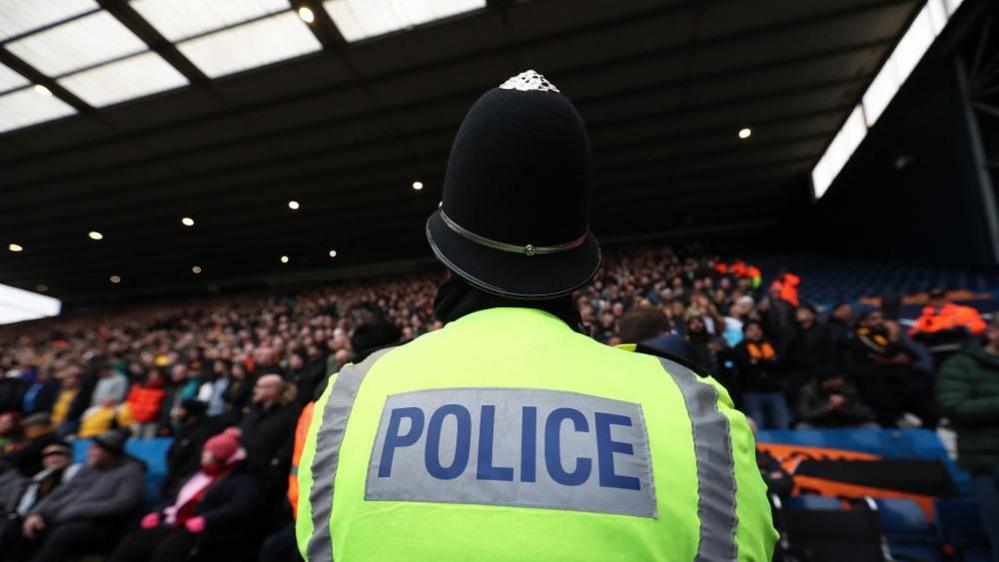Rape cases held up by football policing - watchdog

Officers are having to cancel appointments with victims and delay arrests as they are routinely diverted to police other events including football matches
- Published
Rape investigations are being delayed because officers are being sent to police football matches and festivals, a watchdog has found.
The report by His Majesty’s Inspector of Constabulary, Michelle Skeer, examined nine police forces as part of an effort to improve the investigation of rape and serious sexual offences (Rasso).
It stated: “In half the forces we inspected, Rasso personnel are routinely diverted to supporting events such as football matches and festivals."
Mrs Skeer concluded "major changes are required” for improvements on a national scale but that forces are trying to do so while “dealing with high demand and limited resources”.
She also said that forces should recognise how diverting officers to other events only added to their workload as “Rasso investigators end up cancelling appointments with victims or delaying arrests”.
Her report found that, in nearly every force, half of their investigating teams were comprised of people who “aren't fully qualified and are still training”.
She made 14 recommendations to the forces and other policing bodies but acknowledged there had been early signs of progress in how Rasso cases were being handled.
Her findings come after the Home Office introduced Operation Soteria in 2021 aimed at improving how such cases were investigated by the police.
The scheme was rolled out across all forces in England and Wales last year with the new report examining the progress so far at nine forces.
The proportion of suspects being charged with rape is still among the lowest levels on record with a rate of 2.6%, according to the latest government figures.
Mrs Skeer added: “For too long, victims of rape and serious sexual offences have been failed by the criminal justice system. Many struggle to come forward, out of fear of not being believed or being unable to access support.
"It is crucial the police respond effectively to these devastating crimes. That's why Operation Soteria sets out a new approach and model in response, grounded in decades of research examining policing practice.”
Speaking to the BBC Today programme on Thursday, Mrs Skeer said the new "victim-centred" approach would "transform" how police handle rape and serious sexual offences.
However, she acknowledged "system-wide" changes would be required to tackle shortages in resources, including in the lack of available detectives and analysts.
"But there is something to be hopeful for," she said.
"This new approach could be really promising, but it needs momentum and it needs change".
A statement from the Home Office said: "This government will make sure victims of rape or sexual abuse get the justice they deserve.
"While we welcome the progress being made, in far too many cases victims are being let down. That's why it is so important that the police continue to make long-lasting improvements and put perpetrators behind bars."
Last week a woman received £35,000 in compensation after her rape case was dropped amid claims she could have had an episode of “sexsomnia”.

When unexpected sleepwalking claims turn a rape case on its head, Jade fights back. Filmed over three years, this is the remarkable story of one woman's battle for justice. Will she win?